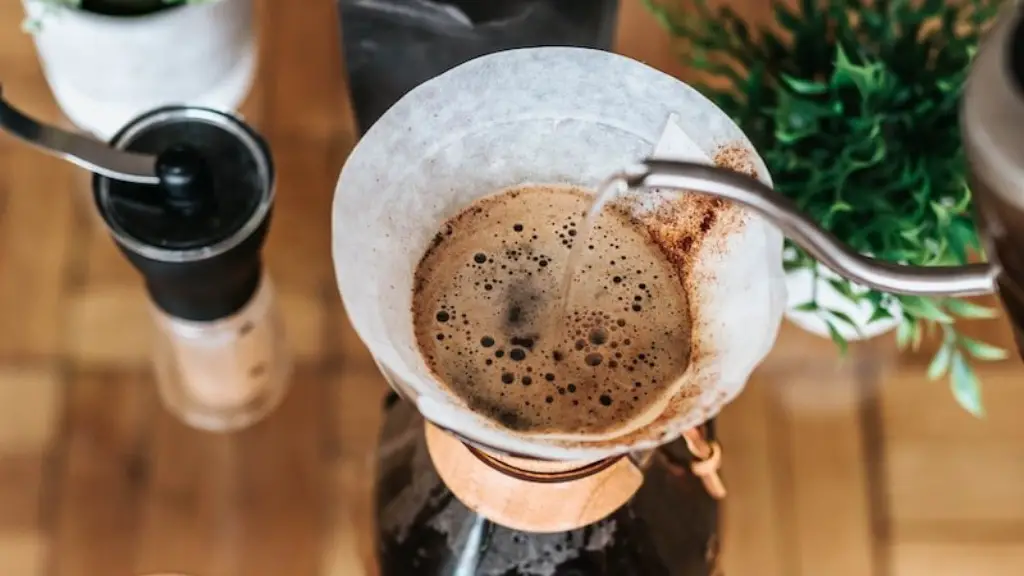An Overview of Drinking Coffee Before a Lipid Panel
Coffee is one of the most popular drinks in the world and with good reason. From its energizing properties to its health benefits, coffee can be a great way to start the day. But before you reach for your morning cup of joe, it is important to be aware that drinking coffee could influence results on a lipid panel test. This article will provide an overview explaining what a lipid panel test is and how drinking coffee before the test could affect your results.
What Is A Lipid Panel Test?
A lipid panel test, also known as a cholesterol panel or lipoprotein panel, is a blood test used to measure levels of fats, including low-density lipoprotein (LDL), high-density lipoprotein (HDL), triglycerides, and total cholesterol. These lipids are important for overall health and are markers for risk for heart disease and other conditions. The test often requires fasting for 8 to 12 hours, as some of these fats can be influenced by food intake and might give inaccurate readings if a person has recently eaten.
Can You Drink Coffee Before a Lipid Panel?
Due to the potential for coffee to affect lipid levels, it is recommended that people refrain from drinking coffee before a lipid panel test. While coffee does not directly increase cholesterol or triglyceride levels, it can actually interfere with tests that measure levels of these lipids. Caffeine can cause the body to release higher levels of epinephrine, a hormone that increases fat mobilization and the breakdown of triglycerides. This can lead to falsely lower readings of triglycerides and cholesterol levels.
So, What Should You Do Before Your Test?
If you have to have a lipid panel test, it is advised that you refrain from drinking coffee, tea, and other caffeinated beverages for at least 12 hours before your test. This also applies to other foods and drinks that contain caffeine, such as chocolate, energy drinks, and certain medication. It is usually recommended to also avoid alcohol and smoking, which can also interfere with the accuracy of the results.
What About the Long-term Effects of Drinking Coffee?
When it comes to drinking coffee for the long-term, studies have shown that coffee consumption does not adversely affect lipid levels. Coffee consumption has even been linked to lower levels of LDL cholesterol and total cholesterol, as well as improved HDL cholesterol levels. Coffee is also considered to be neutral in terms of risk for heart disease.
Do Other Factors Impact Lipid Levels?
Aside from coffee, there are also other factors that can affect lipid levels. Eating a healthy, low-fat and low-cholesterol diet is important, as well as maintaining a healthy lifestyle through regular physical activity. It is also important to maintain a healthy weight and manage stress levels. All these steps can help to maintain healthy cholesterol levels and reduce the risk of heart disease.
Alternative Drinks Before Lipid Panel
If you are avoiding coffee before your lipid panel, it is important to stock up on other energizing drinks, such as green and herbal teas, water, or other caffeine-free beverages, such as sparkling water. These alternative drinks offer plenty of other health benefits, such as hydration and antioxidants, and can help to keep you alert before your test.
Precautions to Take After a Lipid Panel
After the lipid panel test, it is important to take preventative steps to reduce your risk for heart disease. Your doctor may prescribe medication to lower cholesterol levels, or recommend lifestyle changes and heart-healthy food choices. Regular exercise and avoiding smoking, processed foods, and high-saturated fats can all help to reduce the risk of heart disease.
General Health Benefits of Coffee
Coffee can have many health benefits, due to its antioxidants and other compounds. Studies have suggested that coffee consumption can reduce the risk of stroke, Parkinson’s Disease, liver disease, and type 2 diabetes. Coffee may also increase energy levels and improve concentration.
Coffee and Caffeine Intake
Coffee and other caffeinated beverages can be consumed in moderation, with experts generally recommending no more than 300mg of caffeine daily, or the equivalent of around three cups of coffee. Some people may be affected by smaller doses, so it is important to pay attention to your own body and adjust your intake accordingly.
The Interaction between Coffee and Cholesterol Levels
Coffee consumption in moderation can actually help to maintain healthy cholesterol levels and reduce the risk of heart disease. Caffeinated coffee can temporarily raise cholesterol levels, however over time regular consumption can actually have a protective effect, as opposed to long-term coffee abstinence.
Choosing the Right Coffee
It is important to make sure you choose the right type of coffee. Unfiltered coffee, such as French press and boiled coffee, has been associated with higher cholesterol levels, due to its higher content of cafestol and kahweol. For this reason, it is best to drink filtered coffee.
The Bottom Line
Coffee consumption before a lipid panel test can cause inaccurate readings. It is important to refrain from drinking coffee for at least 12 hours before your test, although avoiding other caffeinated beverages and food is also recommended. However, for long-term heart health it is important to drink coffee in moderation and make sure you take other necessary preventative steps.



